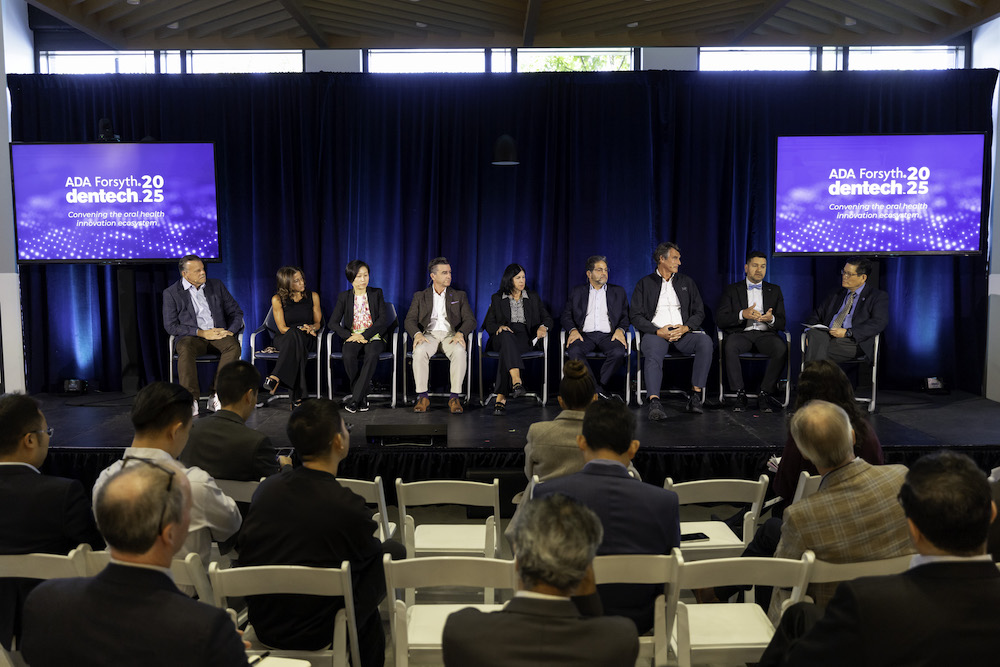Adoption is key challenge when introducing new dental technology, experts say
ADA Forsyth dentech brings together investors, innovators for panel discussion

After new dental technology has gone through all the necessary testing and approvals and received funding, there’s still one big obstacle developers face: getting providers and patients to adopt their product.
Dental investors and innovators highlighted this challenge during a panel discussion Oct. 10 at ADA Forsyth dentech 2025.
“That behavioral change, which seems very simple, is actually a tremendous barrier in practices to adopt new technology,” said panelist Thomas Flemmig, D.M.D., emeritus professor at the University of Hong Kong.
Xin Sylvia He, Ph.D., managing partner of Hyfinity Fund, emphasized the importance of integrating new technology into providers’ current workflows.
Daniel Burke, chief enterprise strategy officer of PDS Health, said there can be two goals for new technology: incrementally improving or completely disrupting what’s currently being done.
“If you’re incrementally making things better and you’re talking to someone like me, that’s really interesting to me, if you fit into our flow and our operational flow,” he said. “Remember, most of what we talk about with innovation is behavioral change of humans.”
Amir Abolfathi, board member of ADA Corporate Ventures, said it can require extensive time and money to figure out which of the thousands of dentists in the U.S. may be early adopters of new technology.
“To go after 200,000 customers is really daunting,” he said.
Dental startups also face challenges that medical startups do not. In medicine, startup companies have a pathway and supports to make it through the early years of commercialization before a procedure code is available for the use of their product, Mr. Abolfathi said.
“There is no structure or process to reward and pay for an innovation that brings value to the system,” he said of dentistry.
Denise Marks, chief financial officer of CareQuest Institute for Oral Health, said the health care system needs to change to better manage the total cost of care and create a seamless patient experience.
“We have to change the system that’s broken today because the rising cost of health care is not sustainable,” she said. “We can do all the innovation we want, we can invest in amazing products and services, but we have to change the system of care.”
Benjamin Wu, D.D.S., Ph.D., chief scientific officer and chief operating officer of the ADA Forsyth Institute, moderated the panel, which also included Muhammad Ali Shazib, D.M.D., dean of the Workman School of Dental Medicine at High Point University; Vimla Black-Gupta, executive vice president of Colgate-Palmolive; and Daniel Croley, D.M.D., chief dental officer of Delta Dental of California.
ADA Forsyth dentech took place Oct. 9-10 at the ADA Forsyth Institute in Somerville, Massachusetts. For more from the event, visit forsyth.org/dentech.



